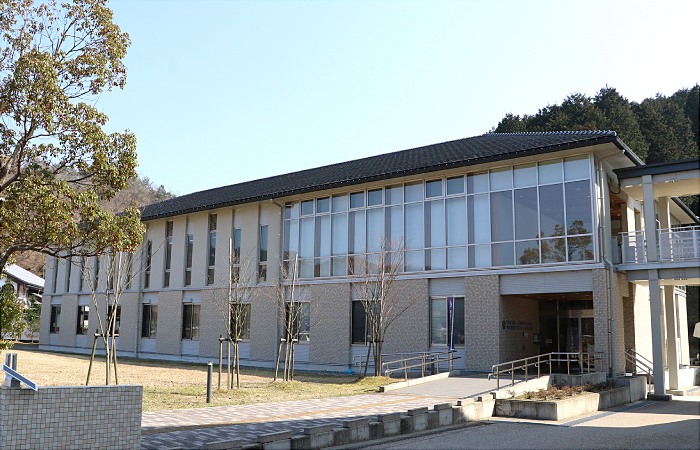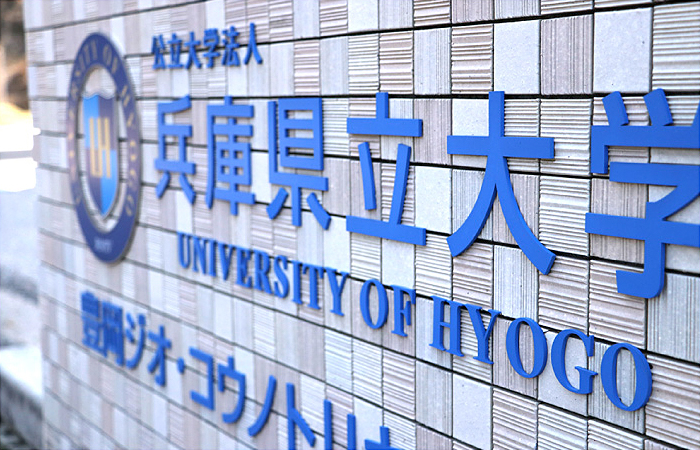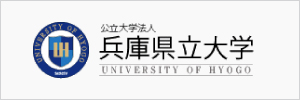Graduate School of Regional Resource Management, University of Hyogo

The graduate school was opened in 2014 in Tajima area where precious regional resources such as white stork and geopark are. This graduate school is based on three study domains that are ecology, geology and social science. The goal is to foster talents who can understand scientifically a connection of nature, culture and society in a local area, and who can perform conservation and application of regional resources.
What is Regional Resource Management ?

White stork and Sanʼin kaigan geopark are originally natural resources, but those are also valuable social cultural resources in the current. Because there are the long history of folklore, conservation and application, and because their connection of natural and cultural in local region have been elucidated scientifically. In the whole country, there are regional resources what be backed in local history. The meaning of the management in this graduate school is to contribute to the development of communities through wise using regional resources.
Admission Policy
This graduate school will accept students who understand our principle and be interested in the connection with nature and culture in local area and have a will to be engaged in regional resource management in the future, from natural sciences and social sciences widely. And this graduate school will accept foreign students and working adults who have equal scholastic ability with university graduates.
Curriculum Policy
The curriculum of this graduate school is comprised of following three phases.
- 1)Basic subjects to make the base of Regional Resource Management
- 2)Common practice subjects to master methodology and to cultivate ability for practice
- 3)Specialty subjects to cultivate the structural understanding across study fields
Diploma Policy
Students in the graduate school can learn systematically corresponding to their wish.
The degree of Ph.M will be awarded to the student who wrote master’s thesis as the conclusion of the learning.
Facluties
| ECO Study field | Yasuo EZAKI, Professor of Ecology. Shioro SAGAWA, Professor of River Ecology. Yoshito OHSAKO, Accosiate Professor of Ornithology. Kazuaki NAITO, Accosiate Professor of Plant Ecology. |
|---|---|
| GEO Study Field | Hiroo INOGUCHI , Professor of Geophysics. Touru SAKIYAMA, Accosiate Professor of Geology. Noritaka Matsubara, Lecturer of Sedimentography. |
| SOCIO Study Field | Atsushi NAKAI, Professor of History. Atsushi YAMAMURO, Professor of Environmental Sociology. Yoshihiro KIKUCHI, Lecturer of Urban and Rural Planning. |
Infomation of the entrance examination
The number to be admitted to the graduate school is 12 people.
The selection method is the specialized examination with a short essay and the oral examination.
You can select the examination place from Toyooka or Kobe.
- The schedules of the entrance examination are almost as follows.
- 1)Schedule A will be between the end of August and the beginning of September.
- 2)Schedule B will be between the end of November and the middle of December.
- 3)Schedule C will be between the end of Febrary and the beginning of March.
Your contact is necessary for the correct information of the entrance examination.




